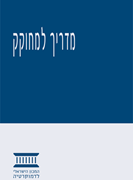

Publications Regarding Legislation
Articles

Bill Proposal: Ombudsman of the Israeli Judiciary (Amendment – Appointment of the Ombudsman), 2024
Written By: Dr. Guy Lurie, Dr. Amir Fuchs
The proposed bill, which would change the selection process of the Ombudsman - responsible for investigating complaints about the conduct of judges and religious court judges - aims to intimidate judges and undermine their independence.

Military Service Law and Reserve Service Law Amendments (extension of mandatory and reserve service period): Professional Opinion
Written By: Yohanan Plesner , Dr. Eran Shamir-Borer, Prof. Amichai Cohen
The government wishes to amend the Military Service Law and Reserve Service Law due to the new security circumstances arising from the outbreak of the war in Gaza. While recognizing the immediate imperative to respond to IDF's personnel needs, we oppose these legislative proposals.
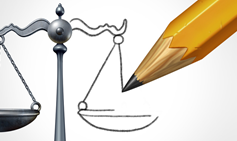
Completing Israel’s Constitutional Process
IDI is currently in the process of composing a revised proposal for a full constitutional arrangement for the State of Israel as it marks 75 years of independence.

Why Does Ben-Gvir Crave the Position of the Vice-Chair of the Ministerial Committee on Legislation?
Written By: Dr. Dana Blander, Dr. Chen Friedberg
The Ministerial Committee on Legislation is a powerful force behind legislation in Israel – therefore it isn’t surprising that Ben-Gvir is vying for the position of Vice-Chairman.

The 24th Knesset in Numbers
Written By: Dr. Chen Friedberg, Avital Friedman
The 24th Knesset has dispersed, around a year and a quarter since it was sworn in. The most prominent finding in the following review is that this Knesset continued the trend set by its predecessor: Both saw a dramatic increase in the number of private members’ bills put forward, and a dramatic reduction in the proportion of such bills that passed a third reading and became laws.

Halting Legislation in the Knesset and No Government Meetings
Written By: Dr. Amir Fuchs
With the exception of issues related to the coronavirus pandemic, this Knesset has passed almost no legislation, and this government has met only rarely.

Regulating Offensive Online Speech—Are the Times Finally A-Changin’?
Written By: Prof. Yuval Shany
The fast-moving escalation in the conflict between President Trump and Twitter in the last week of May may prove in hindsight to be a watershed development for the legal architecture of online social media.
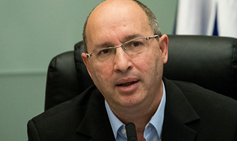
Recommendations for the Incoming Justice Minister
Written By: Dr. Nadiv Mordechay
After three contentious election campaigns Israel's new government has been sworn in. IDI's experts weigh-in with their recommendations on the most important issues on the agenda.

IDI Supports Enacting the “Norwegian Law”
Knesset members should be available for parliamentary legislation and oversight

A Decade of Anti-Democratic Legislation
Written By: Dr. Amir Fuchs
The last decade in Israel has been marked by a wave of legislation that has dealt a blow to the country’s democratic values, the rule of law, and separation of powers.

A Legal or Political Matter?
The political system is being dragged into elections for the third time within a year, for what seem to be extraneous reasons related to the question of how Netanyahu will handle his cases

Israeli Voters - Not Judges
Written By: Prof. Yedidia Z. Stern
Israeli Voters, Not Judges, Must Determine Who Will Lead the Country Next

Protecting the World’s Most Valuable Commodity
Written By: Dr. Tehilla Shwartz Altshuler
The sharing of medical data has extremely positive potential. It can help with predicting rare diseases, early detection and more exact diagnoses than are possible with existing medical capabilities.
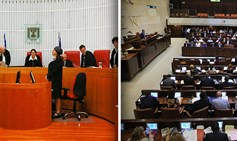
The Rule of Law: The Attack on the Principle of “All are Subject to the Law” in Israel
Written By: Dr. Amir Fuchs
Like all democracies, the principle of the "Rule of Law" exits in Israel. In recent years, there have been quite a few attempts to overcome this tenant, potentially causing long-lasting damage to public confidence in the justice system. Dr. Fuchs explains.

Privacy in a Digital World
Written By: Dr. Tehilla Shwartz Altshuler
Technological progress has created a situation of severe tension and incompatibility between the right to privacy and the extensive data pooling on which the digital economy is based. This development requires new thinking about the substance of that right.
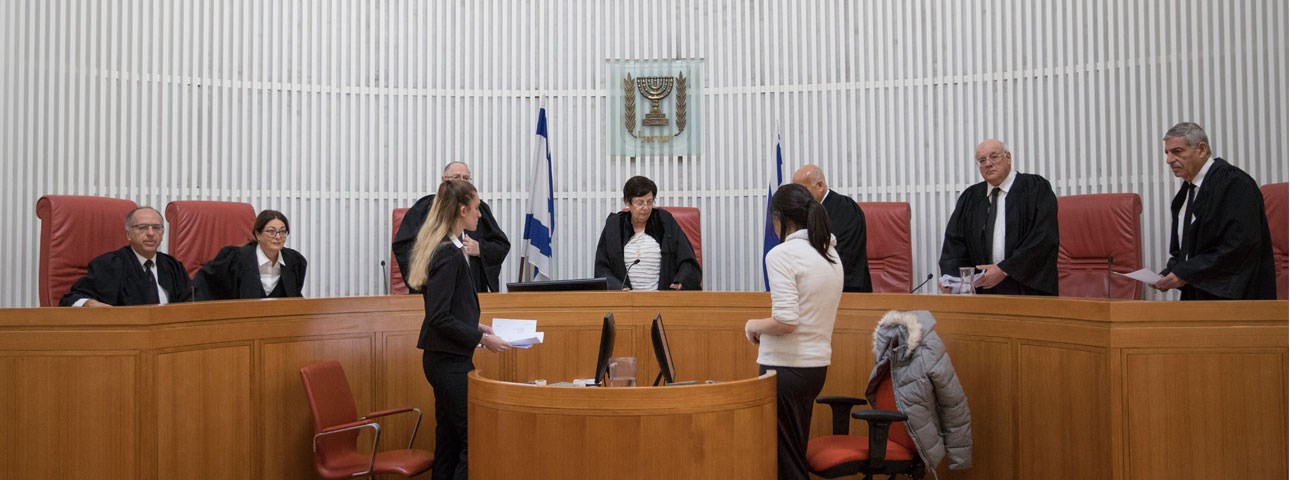
Whatever Happened to the Override Clause?
Written By: Prof. Yuval Shany
It turns out that voters actually want robust judicial oversight - which explains why the Override Clause and placing limitations on judicial review have not been prominant in the election campaign

Attempts to Curtail the Supreme Court
Written By: Yohanan Plesner
The Israel Democracy Institute offers a look inside efforts to reduce politicization of Israel's Supreme Court.

Repealing Law to Dissolve the Knesset: Motivated by Personal Interests
Written By: Prof. Yuval Shany, Dr. Amir Fuchs, Dr. Guy Lurie, Prof. Ofer Kenig
The proposal promotes personal and political interests, strikes a severe blow to the public’s trust in democracy and to elected officials’ obligation to act with integrity

The Return of the Override Clause? A Dangerous and Unnecessary Step
Written By: Prof. Yuval Shany
Laws define the legal rules of our democracy and ensure the stability of the political system while guaranteeing individual rights and general public interest - enactment of the Override Clause would seriously undermine this balance.

Parliamentary Work Index for Israel’s Political Parties
Written By: Dr. Assaf Shapira, Avital Friedman, Dr. Shahaf Zamir
A Special Analysis by the Israel Democracy Institute on which MKs make the most use of the parliamentary tools available to them.

Proposed Facebook Bill - Dangerous Legal Precedent
Written By: Dr. Tehilla Shwartz Altshuler, Dr. Rachel Aridor-Hershkovitz
Proposed Facebook bill circumvents standard legal procedure and threatens to transform Israel into a world leader in repression of free speech

The Nation State Bill is a Constitutional Abandonment of Diaspora Jewry
Written By: Dr. Shuki Friedman
This bill is superfluous and will do far more harm than good. In its newly revised version, the Nation-State Bill, which has been problematic since its inception, reaches new lows by effectively abandoning Diaspora Jewry.

The Nation State Bill Bias
Written By: Dr. Amir Fuchs
How can Israel - a light to the nations, and homeland for the Jewish People, fail to embrace equality for all, alongside commitment to the diaspora?

IDI Praises MK Ayelet Shaked: Time to Reduce Private Legislation
The Israel Democracy Institute praises Justice Minister Ayelet Shaked, who at the Israel Bar Association conference in Tel Aviv on Aug. 31 railed against overregulation and over-legislation.

MK Suspension Bill: Anti-Democratic to the Core
Written By: Dr. Amir Fuchs
Last week, the Knesset Law, Constitution and Justice Committee began deliberating over a proposal that would fundamentally alter the Basic Law – The Knesset: The MK Suspension Bill. If passed, the proposed bill would grant members of Knesset the power to remove another parliamentarian. This op-ed originally appeared in the Jerusalem Post.

IDI Scholars on the Terrorist Death Penalty Bill:
Ahead Sunday's vote in the Ministerial Committee on Legislation on whether or not the death penalty should be used against terrorists, two IDI scholars are calling on ministers to oppose the legislation.

Statement by IDI President Yohanan Plesner on the Advancement of the Mikveh Bill
Following today's advancement of the Mikveh Bill by the Knesset Plenum, IDI President Yohanan Plesner said, "The Mikveh Bill is not worthy of being included in the laws of Israel."

IDI Experts Oppose Bill To Halt Funding To Parties Who Support Boycotting Israeli Settlements
A sharply worded policy statement by Israel Democracy Institute experts was sent last week to members of the Ministerial Committee on Legislation against the proposed amendment to the party funding law that allow a committee to halt funding to parties that call for placing a boycott on the state of Israel or any area of Israel, including the West Bank.

Legal Opinion on the "Zoabi Bill"
Written By: Prof. Mordechai Kremnitzer, Dr. Amir Fuchs
A summary of a legal opinion on a proposed amendment to Basic Law: The Knesset that was submitted by Prof. Mordechai Kremnitzer and Dr. Amir Fuchs to the Ministerial Committee on Legislative Affairs.

A Red Alert for Israeli Democracy
Written By: Yohanan Plesner
In the midst of Operation Protective Edge, IDI President Yohanan Plesner warns of the dangers of racism, incitement, and stifling of free speech and asserts that it is essential to internalize a substantive democratic culture.

Force-Feeding Prisoners: A Serious Violation of Human Dignity
Written By: Dr. Amir Fuchs
In an op-ed in <em>Maariv</em>, Attorney Amir Fuchs warns that force feeding hunger striking prisoners is a serious violation of human dignity, and should not be permitted in order to serve public relations efforts of the State of Israel.

Israeli Public Opinion on Reducing Funding to Organizations that Mark Independence Day as the "Nakba"
Written By: Mr. Chanan Cohen
What do Jews in Israel think about the law mandating the reduction of government funds to institutions that mark Israel Independence Day as a day of mourning for the Palestinian "Nakba"? Find out in this mini-survey conducted by IDI's Guttman Center.

Basic Law: Referendum—Changing the Rules of the Game of Israeli Democracy
Written By: Dr. Dana Blander
Dr. Dana Blander draws on the findings of Israeli public opinion polls and explores some of the ramifications of the new Basic Law: Referendum, a law that establishes a system in which every citizen is entitled to participate in historic decisions on withdrawal from territory.

The ‘Jenin-Jenin Law’: A Blessing or a Curse?
Written By: Prof. Mordechai Kremnitzer, Dr. Amir Fuchs
In an op-ed in <em>Maariv</em>, IDI Vice President Mordechai Kremnitzer and Attorney Amir Fuchs warn that the proposed amendment to Israel's Anti-Defamation Law, which would allow IDF soldiers to bring a class action suit for libel when the operational activities in which they participated are criticized in the media, will have the opposite of its intended effect.

The ‘Jenin-Jenin Law’: A Blessing or a Curse?
Written By: Prof. Mordechai Kremnitzer, Dr. Amir Fuchs
In an op-ed in Maariv, IDI Vice President Mordechai Kremnitzer and Attorney Amir Fuchs warn that the proposed amendment to Israel's Anti-Defamation Law known as the 'Jenin-Jenin Law' will have the opposite of its intended effect.

A Jewish and Undemocratic State?
Written By: Prof. Yedidia Z. Stern
The proposed "Basic Law: Israel – The Nation State of the Jewish People" has the support of one third of the members of Knesset. In this op-ed, which was originally published in Hebrew in Yedioth Ahronoth, IDI Vice President of Research Prof. Yedidia Z. Stern, who is deeply committed to the Jewish nature of the State of Israel, warns that the shift from defining Israel as a "Jewish and democratic state" to a "Jewish state with a democratic regime" is not a semantic shift, but a seismic change.

The Counter-Terrorism Memorandum Bill
Written By: Prof. Mordechai Kremnitzer, Prof. Yuval Shany, Terror and Democracy Research Team
An analysis of the proposed comprehensive counter-terrorism bill that was prepared by IDI's Terrorism and Democracy research team and submitted to the Ministry of Justice.

Who Really Cares about Converts?
Written By: Prof. Yedidia Z. Stern, Netanel Fisher
On July 12, 2010, the Knesset’s Constitution, Law, and Justice Committee approved a controversial draft bill on conversion reform. Presented as an effort to make conversion more accessible to hundreds of thousands of Israeli citizens who are not Jewish according to state and religious law, the proposed legislation sparked an outcry both in Israel and the Diaspora. In this article, IDI Researcher Netanel Fisher exposes the dangerous linkage between conversion and the status of Judaism's non-Orthodox movements and assesses the likelihood of the bill achieving its goals.

Minister of Justice Friedman vs. The Judicial System
Written By: Prof. Mordechai Kremnitzer, Yael Cohen
Last week, the Justice Minister proposed a bill aimed at separating the duties of the Attorney General from those of the Public Prosecutor. Prof. Mordechai Kremnitzer writes that Friedman's several attempts to introduce changes to the judicial system should be seen for what they are: a part of his larger agenda of weakening the judicial system.

The Nation-State Law, One Year Later: What has Changed?
Written By: Dr. Amir Fuchs
A year has passed since, The Basic Law: Israel the Nation-State of the Jewish People, was passed. What, if anything, has changed in that time?

Q&A on the Override Clause
Israel Democracy Institute experts provide research, background and insight into WHY | WHO | HOW

Behind the Scenes of Israel's Ministerial Committee For Legislation
Written By: Dr. Dana Blander, Dr. Chen Friedberg
There are ways to transform this powerful committee into one that combines politics with professionalism, instead of being one more arena for the settling of political scores.

Harmful Revolution: The Nation-State Bill’s Assault on Equality
Written By: Prof. Yedidia Z. Stern
Israelis must unite around a balanced arrangement that asserts that Israel is the nation-state of the Jewish people that guarantees equality for all its citizens.


